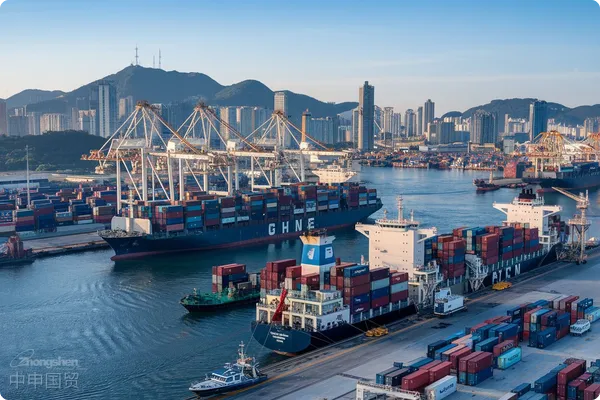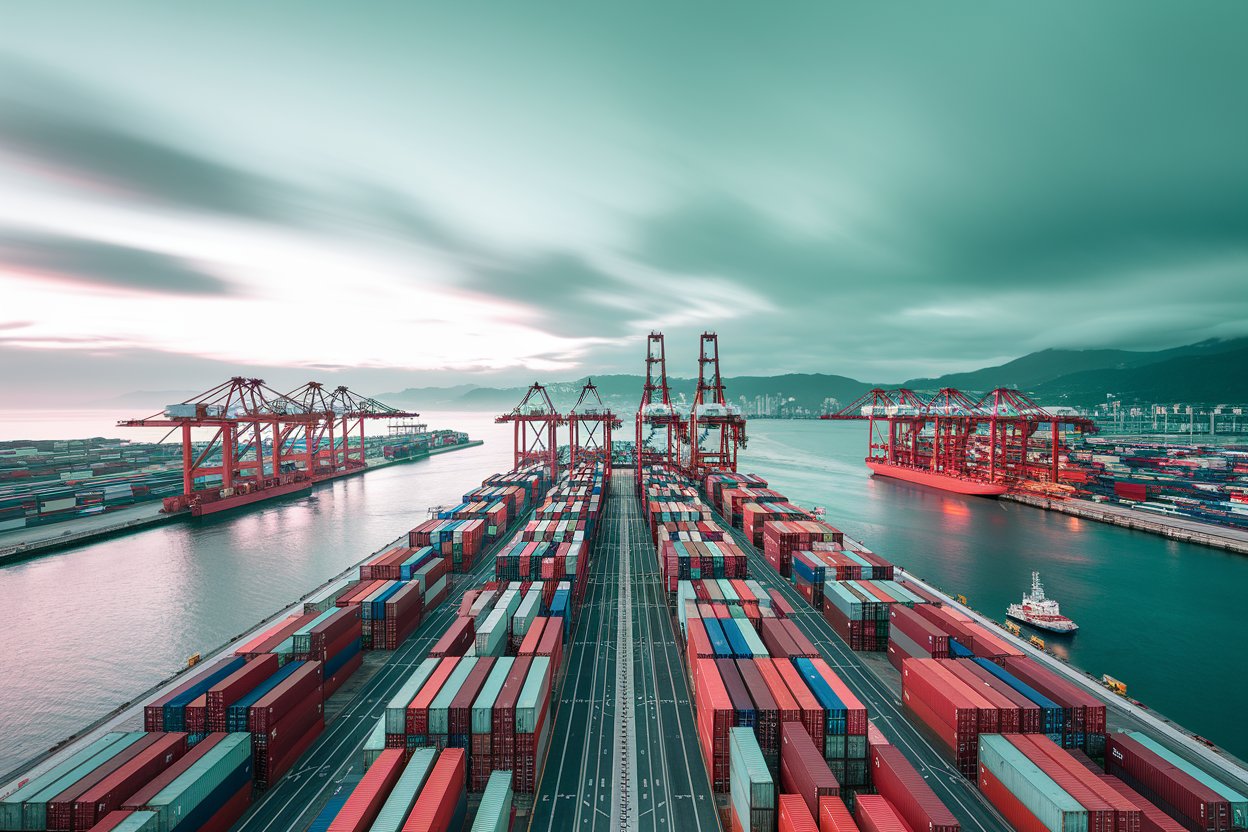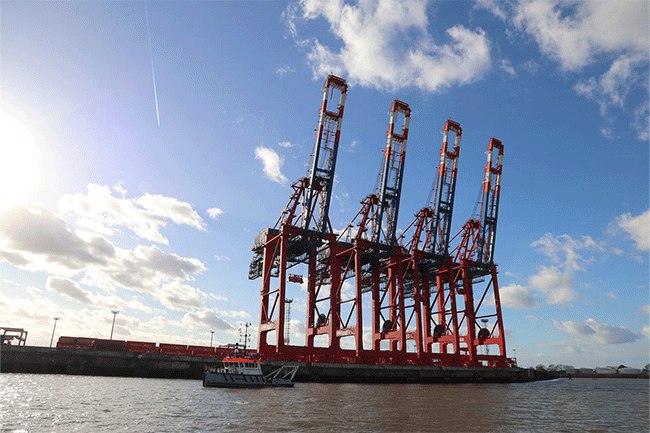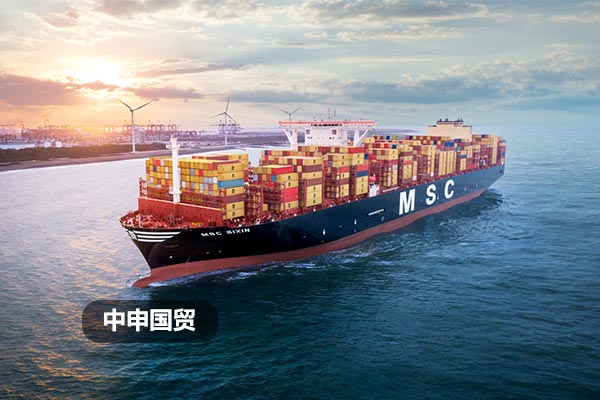- 20 Years of Expertise in Import & Export Solutions
- +86 139 1787 2118

Importing Air Compressors from Germany:?Foreign trade?In-depth Process Analysis
In the context of a globalized economy, importing air compressors from Germany has broad market prospects. However, the import process involves numerous links, from document handling to logistics arrangements, from?Foreign exchange settlement?to product certification, every step is crucial. This article will provide an in-depth analysis of the relevant processes to offer comprehensive guidance for importers.
Strong Professional Capabilities in Document Handling and Logistics Arrangement
Document handling is the foundation of import business. When importing air compressors from Germany, it is first necessary to ensure the accurate issuance of the commercial invoice, which should detail the product's name, specifications, quantity, price, and other information, serving as an important basis for customs taxation. The packing list must clearly state the packaging situation of the goods, including the dimensions, weight, and contents of each package, to facilitate logistics and customs inspection. The bill of lading, as the document of title, is of paramount importance. Our company, with 20 years of?Import/export?trade experience, is extremely proficient in the creation and review of all types of documents, able to handle them accurately and efficiently to avoid delays or fines caused by documentation issues.
In terms of logistics arrangements, from Germany to China,?Ocean shipping?is a common choice. We will select the appropriate shipping company and schedule based on the volume, weight, and delivery date of the goods. For equipment like air compressors, which may be large or heavy, special attention must be paid to the choice of shipping space when booking to ensure the goods can be transported safely and stably. At the same time, we will work closely with freight forwarders to handle a series of tasks such as packing and customs declaration. During the transportation process, we track the cargo's status in real-time and provide timely feedback to the client, so they always know the location of their goods. For example, in a past case of importing an air compressor from Germany, we discovered an error in the packing information provided by the shipper and assisted in correcting it before customs declaration, thus avoiding detention of the goods at the destination port and saving the client significant time and money.
Advantages of VTB Foreign Exchange Settlement in the Russian Market
Although the main topic is importing air compressors from Germany, the Russian market, as one of our main markets, has unique advantages in settlement of exchange that are worth mentioning. In trade with Russia, the settlement of exchange is crucial. VTB (Vneshtorgbank, a Russian foreign trade bank) provides us with a convenient channel for this. Generally, the settlement process is as follows: when goods are exported to Russia and clear customs, the buyer pays the funds into the seller's account at VTB. Leveraging our good cooperative relationship with VTB, we can quickly complete the settlement and crediting of foreign exchange. Compared to other banks, VTB's procedures for handling Russian trade settlements are simpler and faster, effectively reducing the risks associated with exchange rate fluctuations. For example, in past transactions with Russian clients, using VTB for settlement, the average time from receiving payment to completion of settlement was only 2-3 working days, whereas other banks might take 5-7 working days, greatly improving capital turnover efficiency.
Import and Export Procedures and Solutions for the Southeast Asian Market
The Southeast Asian market is also a key area we serve. When importing air compressors from Germany to a destination in Southeast Asia, the import process has its own characteristics. Taking Indonesia as an example, an import license must be applied for first. The importer needs to submit an application form, commercial invoice, packing list, and other documents to the relevant local authorities, and the application process usually takes 1-2 weeks. Before the goods arrive at the Indonesian port, customs declaration procedures must be completed. Accurate cargo information, including the product's HS code, must be provided during declaration. Customs will inspect and levy taxes based on the declared information. For air compressors, this may involve a certain percentage of import duty and value-added tax.
In terms of logistics, from Germany to Southeast Asia, besides sea freight, one can also choose?air freight?depending on the actual situation. If the goods are urgently needed, air freight can significantly shorten the transport time. However, air freight costs are relatively high, so a balance must be struck between cost and delivery time. Our company has established long-term cooperative relationships with several local logistics companies in the Southeast Asian market, enabling us to obtain more favorable freight rates and higher quality services. For example, for some air compressor orders with extremely high delivery time requirements, we work with local logistics partners in Southeast Asia to use sea-land or air-land combined transport to ensure the goods are delivered to the client on time.
Challenges and Opportunities in the Current International Trade Landscape
The current international trade situation is complex and ever-changing. On the one hand, trade protectionism is on the rise, with various countries implementing trade restriction measures. For instance, some countries have increased import tariffs, raising the cost of imported products, which is undoubtedly a challenge for importing air compressors from Germany. At the same time, frequent changes in trade policies make it difficult for importers to accurately grasp the relevant regulations, increasing trade risks. On the other hand, there are also numerous opportunities. With the advancement of the "Belt and Road" initiative, trade cooperation between countries along the route is strengthening, and the degree of trade facilitation is gradually increasing. This provides an opportunity to expand the market for air compressors imported from Germany. In addition, the acceleration of global digitalization and the rise of?E-commerce?have brought new sales channels and models to the import business. Importers can reach end customers more directly through e-commerce platforms, expanding their market share.
Product Certification Services
When importing German air compressors, product certification is an essential step. Different countries and regions have different certification requirements for air compressors. For example, the EU market requires CE certification, which is the passport for products entering the EU market. The certification process usually involves testing the product's safety, environmental friendliness, and other aspects. In China, air compressors may need to comply with relevant national standard certifications. Although our company does not directly provide certification services, we assist clients in preparing the necessary materials for certification, such as product manuals and technical parameters, and recommend professional and reliable certification bodies. At the same time, we promptly inform clients of the latest certification policies and requirements to ensure they successfully pass the certification, allowing the imported air compressors to be sold legally and compliantly in the market.
Importing air compressors from Germany requires careful operation in multiple aspects, including document handling, logistics arrangements, settlement of exchange, and product certification. In the face of a complex international trade situation, it is important to fully seize opportunities and respond to challenges. Our company, with its professional capabilities and extensive experience, will provide comprehensive support and services to importers, helping their import business to proceed smoothly.
Resources
Contact Us
Email: service@sh-zhongshen.com
Recommended for You
Contact via WeChat

? 2025. All Rights Reserved.









